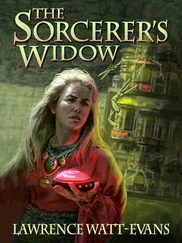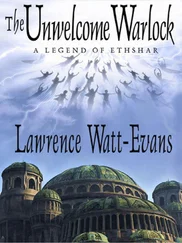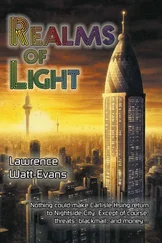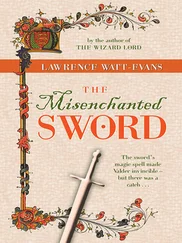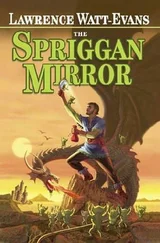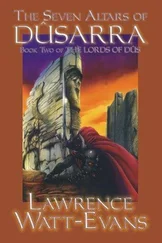Lawrence Watt-Evans - Nightside City
Здесь есть возможность читать онлайн «Lawrence Watt-Evans - Nightside City» весь текст электронной книги совершенно бесплатно (целиком полную версию без сокращений). В некоторых случаях можно слушать аудио, скачать через торрент в формате fb2 и присутствует краткое содержание. Жанр: Фантастика и фэнтези, на английском языке. Описание произведения, (предисловие) а так же отзывы посетителей доступны на портале библиотеки ЛибКат.
- Название:Nightside City
- Автор:
- Жанр:
- Год:неизвестен
- ISBN:нет данных
- Рейтинг книги:5 / 5. Голосов: 1
-
Избранное:Добавить в избранное
- Отзывы:
-
Ваша оценка:
- 100
- 1
- 2
- 3
- 4
- 5
Nightside City: краткое содержание, описание и аннотация
Предлагаем к чтению аннотацию, описание, краткое содержание или предисловие (зависит от того, что написал сам автор книги «Nightside City»). Если вы не нашли необходимую информацию о книге — напишите в комментариях, мы постараемся отыскать её.
Nightside City — читать онлайн бесплатно полную книгу (весь текст) целиком
Ниже представлен текст книги, разбитый по страницам. Система сохранения места последней прочитанной страницы, позволяет с удобством читать онлайн бесплатно книгу «Nightside City», без необходимости каждый раз заново искать на чём Вы остановились. Поставьте закладку, и сможете в любой момент перейти на страницу, на которой закончили чтение.
Интервал:
Закладка:
Anyway, ignoring the flukes, most of the planet's smooth and flat, with nothing to stop the wind.
As for how the winds got started, that's where the slow rotation comes in. At the noon pole, which is over an ocean and has been for as long as humans have been on the planet, the sun heats the air, and it rises, carrying water vapor, and it blows away nightward at high altitude. The air cools along the way and drops the water as rain in the rainbelt, starting about two hundred kilometers past the terminator onto the nightside. At the midnight pole all that cool air drops down to the slushcap and blows back day-ward along the ground, back toward the noon pole.
It's one huge convection current, that's all. One great big convection current that covers the entire planet. And in the millions of years since the planet's rotation slowed enough for there to be a noon pole and a midnight pole, it's worked up to be a pretty good speed.
What this really means is that the entire atmosphere of Epimetheus is one big windstorm, one that's been going on for millions of years and will go on for millions more.
That added a nice little final touch to my position; I had to walk a thousand kilometers or more head-on into that wind, that hundred-kilometer-an-hour wind.
But I didn't have any choice, so I took a look around the cab, picked up the discarded gag, decided there wasn't anything else of any possible use, and then I slid out the door onto the hard gray sand and I started walking into that wind, head down, jacket pulled up around my neck, with the sun hot on my back and the skin on my hands already red with sunburn, almost starting to blister. I wrapped the gag, which was a strip of porous fabric I couldn't identify, across my mouth to make breathing easier.
The wind almost lifted me from the ground with every step; it was a constant pressure fighting me. I turned first one shoulder forward, then the other, to cut into the wind, and that helped a little. If I stopped moving and stayed upright, I knew it would blow me back east like an empty wrapper down an alley, probably at twice the speed I made by walking.
I wished I was heavier, but I wasn't, and I wasn't going to get any heavier.
About a kilometer from the cab my grip on the gag slipped, and the wind snatched the cloth away and sent it sailing eastward. I turned for a second to watch it go, but I never considered trying to retrieve it; it was moving faster than I ever could, and in the wrong direction.
I turned westward again and marched on, making do without it.
At least I always knew which way to go; face to the wind, walking up my own shadow, away from the sun.
That shadow-that was something of a new experience, too, having a shadow stretched out before me, that moved when I moved, but that always kept the same shape. I'd seen plenty of shadows and cast my share, but when I walked in front of a light in the city my shadow would shorten, then lengthen, as I walked past. Eta Cass B cast shadows, of course, but they were faint things, just darker patches in the red darkness of the city streets. Eta Cass A wasn't so gentle; that shadow before me was hard-edged and sharp, black against the glowing sands.
The shadow was my own little piece of the night, and I admired it as I walked-when I could bear to open my eyes and look at it.
I had hoped, when I left the cab, that the wind would be cool, but it was too hard to feel cool; it didn't soothe, it ripped and tore, and I felt my skin tightening against it. I squinted against the wind and the glare, sometimes closing my eyes entirely. I didn't need to see to keep the right direction, only to keep from stumbling over the rocks that dotted the plain.
I hoped that my symbiote was handling the ultraviolet and the windburn, but I knew that it probably couldn't. It was meant for cuts and scrapes, the odd infection, general tissue maintenance-not for fending off the constant assault of a hurricane or hard radiation.
The wind stole my sweat away as fast as it emerged, and I was dry and thirsty within twenty paces, and although I still didn't feel cool, I was shivering with an uncontrollable chill before I'd walked the cab under the horizon.
But I walked on. What else could I do?
The thought that I might be on the wrong side of a sea occurred to me pretty much right at the start, too, but there wasn't anything I could do about that, either. I just walked.
I had no choice unless I wanted to just lie down and die. I didn't. I walked.
It was a waking nightmare. At times I felt as dead as Orchid and Rigmus surely thought I already was, but I never stopped. I'm not someone who could ever just lie down and die, not while I could still move. I had no food, no water, but with my symbiote to help, I thought I could last as much as a week-I had paid extra, back when I could afford it, to get a symbiote with a transferable energy reserve, and with the capability to digest excess tissue in a really bad emergency. Like this one. I figured that I had a week, but that at the end of that time I'd have no fat, no appendix, and maybe less tissue on several organs.
To walk a thousand kilometers in a week I needed to cover a hundred and forty-three a day, about six every hour-no sleep at all, of course. I couldn't afford to sleep. Six kilometers an hour didn't seem that much, just a fast walk.
A fast walk in blazing sun into a hundred-kilometer-an-hour headwind, nonstop for seven days.
I think I knew it was hopeless right from the first.
But I had no choice.
I don't know how long I walked, or how far. My landmarks weren't by distance or time, since I had no way of measuring either one. My landmarks were signs of progress or impending doom.
The signs of progress were few and feeble: losing sight of the cab, or imagining that my shadow had lengthened a bit. The signs of impending doom were another matter.
There were the blisters that formed on the backs of my hands, and then the blisters on the back of my neck, and in time the blisters on my feet that probably weren't from the sun at all, but from walking too much.
There was the first time I stumbled over a rock, and the first time I stumbled and fell, and the first time I fell and couldn't get up right away.
There was the time when the grit in the wind finally ruined the seal on my jacket, so it wouldn't hold any longer.
There was the time I threw away my empty holster, to save weight, and the time not long after that when I wondered if chewing on it might have yielded a trace of moisture.
There was the time when I realized that my eyes were not just adjusting to the glare, but that my vision was fading-the ultraviolet had burned my retinas. I saw the sand as just an expanse of gray, rather than Individual grains.
In time, I no longer saw the smaller rocks, and the fine details of the sky-the high, lacy clouds blowing fiercely westward, outracing me on their way to the rainbelt-vanished into a white blur.
My mind wandered, of course. Walking across that wasteland, all of it the same, the details fading as my eyesight faded, how could I possibly keep all my attention on what I was doing?
I tried to imagine what a sea would look like if I hit one-assuming I could still see and didn't walk right into it. I'd seen holos, of course, and even direct visual feeds off wire of nightside seas, but I didn't remember a wire feed of a daytime sea, and holos don't always capture everything. That bright daylight would sparkle from the water, I knew, but I couldn't remember just what the holos had looked like, whether they had shown daylight lancing painfully, the way it glinted from some of the rocks, or whether the water muted it somehow. I thought the pseudoplankton might absorb some of the light.
I wondered if Epimethean seawater would kill me quickly, or only slowly, if I drank it. I knew that it was toxic. The seas were radioactive and rich in metal salts.
Читать дальшеИнтервал:
Закладка:
Похожие книги на «Nightside City»
Представляем Вашему вниманию похожие книги на «Nightside City» списком для выбора. Мы отобрали схожую по названию и смыслу литературу в надежде предоставить читателям больше вариантов отыскать новые, интересные, ещё непрочитанные произведения.
Обсуждение, отзывы о книге «Nightside City» и просто собственные мнения читателей. Оставьте ваши комментарии, напишите, что Вы думаете о произведении, его смысле или главных героях. Укажите что конкретно понравилось, а что нет, и почему Вы так считаете.

